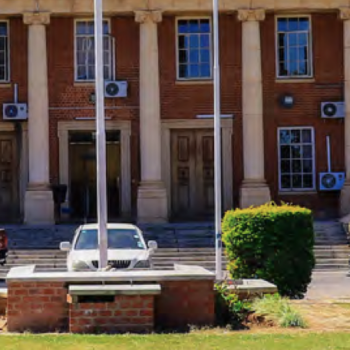
The Public Interest Law Gathering, organised from 11 to 13 July 2012 in Johannesburg, reflected on some of the challenges to public interest litigation. Among the different panels, was one on the extent to which loitering and related laws are used to trample on the rights of some of the most marginalised groups in our society – refugees, asylum seekers, migrants, street children, homeless, informal traders and sex workers. The conduct prohibited under these laws is often vaguely defined, allowing police a wide discretion to arrest and harass people who committed no crimes. The control of public space, often frequented by marginalised groups, is a contentious issue – laws might have a colonial legacy but they continue to receive support from government and citizens.
High level bodies such as the UN General Assembly (66th session, 4 August 2011, Report by Special Rapporteur on Extreme Poverty and Human Rights) have noted an increase in the implementation of laws to limit behaviour, actions and movements of people in public space, which greatly impede the lives and livelihoods of those living in poverty. Unfortunately this recognition has not resulted in law reform.
Lukas Munting from the Civil Society Prison Reform Initiative highlighted the extent to which people are arrested for non-serious offences. In southern Africa, people are often arrested for outdated and highly discretionary offences. Whilst the African Commission’s 2003 Ougadougou Declaration called for a repeal of outdated offences in order to reduce overcrowding in police cells and prisons, little has changed.
According to Jacob van Garderen from Lawyers for Human Rights loitering, traffic and trading laws are used selectively against migrants and refugees. LHR has frequently and successfully engaged in litigation to uphold the rights of marginalised communities who were unlawfully harassed, arrested and abused by police. Nevertheless, it remains difficult to ensure police compliance with court orders.
Willene Holness from the Legal Resources Centre in Durban explained the extent to which the city council unlawfully uses local by-laws to violate the rights of street traders and street children. She highlighted the importance of regular information sessions with street traders and organisations working with street children to identify and document their problems and gain information for future litigation challenging the constitutionality of such laws. Police practices against street children are in direct violation of the child protection measures in the Children’s Act and show the disjuncture between work of different government departments.
The Global Commission on HIV and the Law in their report entitled HIV and the Law: Risks, Rights and Health recommended that countries “ensure that existing civil and administrative offences such as ‘loitering without purpose’, ‘public nuisance’, and ‘public morality’ are not used to penalise and harass sex workers”. SALC’s presentation highlighted the extent to which sex workers are targeted by loitering and related laws in southern Africa and the various strategies for litigation which can be used to address this issue.
Whilst public interest litigation is important, it is not an end in itself. Marginalised populations face rights violations at police and Magistrates Court level and there is a need to ensure that these levels of the criminal justice system are aware of their constitutional responsibilities.
Even in the absence of legal representation, judges and magistrates can (and should be encouraged to) refuse to convict accused for unsubstantiated offences. For example, in the 2007 case of SM and 12 others v R in the Malawi High Court, 13 women were picked up at 3am and brought to court under rogue and vagabond charges. The judge set aside the women’s convictions commenting: “surely the law could not have intended to criminalise mere poverty and homelessness more especially in a free and open society”. He held that the arrests were misconceived and constituted an invasion of the women’s privacy. Similarly in the Malawi case of R v Balala 1997 2 MLR 67 Tambala J expressed concern that the charge of rogue and vagabond could be used to oppress needy persons who are not criminals.
The Panel highlighted the need to carve a careful strategy for litigation against loitering and other outdated offences and conduct adequate research in preparation for litigation. There should be collaboration between legal organisations, social groups and researchers to build evidence and share information.
An excellent example of such collaboration was the 2009 Central Methodist Church case, which challenged the arrest of foreign nationals in central Johannesburg for violating loitering laws. Although the case did not go to court, it provides a good example of a holistic litigation strategy where the relief sought included:
- A declaration that the arrests were unlawful (no reasonable cause, manner of arrest) and unconstitutional;
- An order directing the city to meaningfully engage with affected parties;
- An interdict to restrain police from arrests with ulterior purpose (not to prosecute), harassment and intimidation; and
- A declaration that the by-law on loitering is unconstitutional (vague, over breath, no intent required, operates disproportionally).
In the case of sex work, which is highly stigmatised, a localised and narrow approach is sometimes needed. This is why, for example, in the SWEAT case, parties did not seek the repeal of by-laws. The SWEAT case concerned the on-going arrests of sex workers in Cape Town without prosecuting them. The court declared the continuing arrest and harassment of sex workers unlawful and granted an interdict preventing the police from arresting workers for an ulterior purpose and harassing or intimidating sex workers.
Interestingly foreign case law on loitering and related laws is scarce. In the recent case of Canada (Attorney General) v Bedford, 2012 ONCA 186, whilst declaring the prohibitions on brothels and living on avails of prostitution both unconstitutional, the majority did not find a nuisance law related to prostitution (communicating provision) unconstitutional. The Bedford judgment is useful for its analysis of the 3 principles of fundamental justice – legislation must not be arbitrary, overly broad or and grossly disproportionate.
The US Supreme Court has held that loitering and “habitually wandering at night” are constitutionally protected under the freedom of assembly and expression. Various US cases have held loitering provisions void for vagueness because they did not give a clear indication of which actions were prohibited and provided scope for excessive discretion by police to arrest. Kolender v Lawson 461 US 352 (1983); Leal v Town of Cicero 2000 WL 343232; Nunez v City of San Diego 114 F.3d 935 (9th Circuit, 1997); Papachristo v City of Jacksonville 405 US 156 (1972). But the effect of declaring loitering laws in the US vague or unconstitutional has been the creation of new more specific laws. Accordingly, all US states continue to prohibit loitering for purpose of prostitution.
No doubt, litigation and advocacy against loitering laws raise various challenges. Nevertheless, it is important to continue to work in this area since eventual success will provide much needed relief to poor and marginalised communities in southern Africa and reduce the strain on the criminal justice system.



